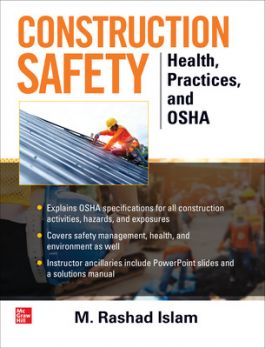Feds propose drug, alcohol testing clearinghouse for truck & bus drivers
Employers would be required to check it before hiring
 The U.S. Department of Transportation’s Federal Motor Carrier Safety Administration (FMCSA) has announced a proposed rule to establish a drug and alcohol clearinghouse for all national commercial driver’s license (CDL) holders. The agency said the clearinghouse would help improve roadway safety by making it easier to determine whether a truck or bus driver is prohibited from operating a commercial motor vehicle for failing to comply with federal drug and alcohol regulations, including mandatory testing.
The U.S. Department of Transportation’s Federal Motor Carrier Safety Administration (FMCSA) has announced a proposed rule to establish a drug and alcohol clearinghouse for all national commercial driver’s license (CDL) holders. The agency said the clearinghouse would help improve roadway safety by making it easier to determine whether a truck or bus driver is prohibited from operating a commercial motor vehicle for failing to comply with federal drug and alcohol regulations, including mandatory testing.
U.S. Transportation Secretary Anthony Foxx said the proposal would also encourage “the employment of the many safe drivers who follow our drug and alcohol requirements.”
Current regs
Current federal regulations require employers to conduct mandatory pre-employment screening of a CDL driver’s qualifications based upon his or her driving record. However, there has not been a single federal repository recording positive drug and alcohol tests by CDL holders that employers would be able to search to ensure that the driver is able to perform safety-sensitive duties.
The proposed rule announced today would create such a repository and require employers to conduct pre-employment searches for all new CDL drivers and annual searches on current drivers.
Leveraging technology
“We are leveraging technology to create a one-stop verification point to help companies hire drug and alcohol-free drivers,” said FMCSA Administrator Anne S. Ferro.
Under the rule, FMCSA-regulated truck and bus companies, Medical Review Officers, Substance Abuse Professionals, and private, third party USDOT drug and alcohol testing laboratories would be required to record information about a driver who:
- Fails a drug and/or alcohol test;
- Refuses to submit to a drug and/or alcohol test; and
- Successfully completes a substance abuse program and is legally qualified to return to duty.
Private, third-party USDOT drug and alcohol testing laboratories also would be required to report summary information annually. This information would be used to help identify companies that do not have a testing program.
To ensure the privacy of drivers involved, each CDL holder would need to provide his or her consent, before an employer could access the clearinghouse.
Drivers who refuse to provide this information could still be employed by the truck or bus company; however, they could not occupy safety-sensitive positions, such as operating a commercial motor vehicle.
It is a violation of federal regulations to drive a truck or bus under the influence of controlled substances or alcohol. Federal safety regulations require that truck and bus companies that employ CDL drivers conduct random drug and alcohol testing programs. Carriers must randomly test 10 percent of their CDL drivers for alcohol and 50 percent of their CDL drivers for drugs each year.
For each of the past three years, federal and state safety inspectors have conducted approximately 3.5 million random roadside inspections of commercial vehicles and of their drivers.
Thousands of alcohol-related violations
In 2013, on 2,095 occasions, or in 0.23 percent of the unannounced inspections, a CDL holder was immediately placed out-of-service and cited for violating federal regulations governing alcohol consumption. In 2012, FMCSA records show that there were 2,494 violations of this regulation.
In 2013, on 1,240 occasions, or in 0.13 percent of the unannounced inspections, a CDL holder was placed immediately out-of-service and cited for violating federal regulations governing controlled substances. In 2012, FMCSA records show that there were 1,139 violations of this regulation,
In addition to random testing, truck and bus companies are further required to perform drug and alcohol testing on new hires, drivers involved in significant crashes, and whenever a supervisor suspects a driver of using drugs or alcohol while at work.
The proposed rule announced today was directed by Congress in the most recent transportation bill, the Moving Ahead for Progress in the 21st Century Act.
For a copy of the Federal Register announcement, see: www.fmcsa.dot.gov/rules-regulations/administration/rulemakings/rule-programs/rule_making_details.aspx?ruleid=471
Looking for a reprint of this article?
From high-res PDFs to custom plaques, order your copy today!







